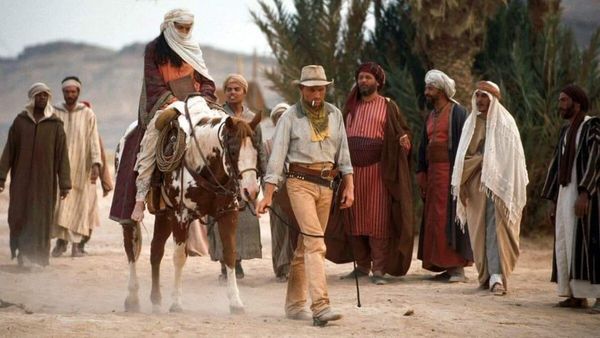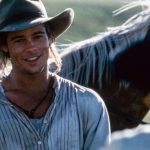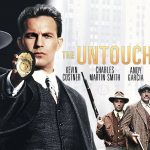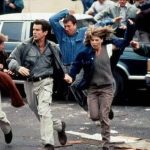Hidalgo

“Hidalgo,” directed by Joe Johnston and released in 2004, is an epic Western biographical film that captivates audiences with its thrilling narrative and breathtaking visuals. Based on the legendary figure Frank Hopkins and his mustang, Hidalgo, the film transports viewers to the arid deserts of Arabia in the late 19th century, where the stakes of an extraordinary horse race intertwine with themes of courage, friendship, and cultural exchange.
The film opens by introducing Frank Hopkins, portrayed by Viggo Mortensen, an American long-distance rider who is celebrated for his remarkable achievements in endurance races across the United States. Despite his fame, Frank grapples with feelings of alienation and the loss of purpose after the death of his beloved horse, Hidalgo. When an opportunity arises to participate in a grueling race across the Arabian Desert, known as the “Ocean of Fire,” he seizes the chance not only to prove himself but also to honor his fallen companion by racing with Hidalgo, the mustang he rescued from obscurity.
Set against the backdrop of the vast Arabian landscape, “Hidalgo” features stunning cinematography that captures the stark beauty of the desert, the grandeur of ancient ruins, and the majesty of the horses. The film effectively contrasts the rugged terrain with the elegance of the Arabian culture, showcasing both the challenges and the splendor of the environment. The cinematographic choices enhance the epic quality of the story, immersing the audience in a world of adventure and exploration.
As Frank and Hidalgo embark on their journey, they encounter various obstacles, both physical and cultural. The race pits Frank against a group of Bedouin riders, who ride purebred Arabian horses, presenting a formidable challenge. The film explores themes of rivalry and respect, illustrating Frank’s determination to prove that his mustang, a breed often viewed as inferior, can compete on an equal footing with the best Arabian horses. This underdog narrative resonates deeply, appealing to viewers’ sense of justice and fairness.
Throughout the film, Frank forms bonds with the local people, particularly a Bedouin woman named Jazira, played by Zuleikha Robinson. Their relationship highlights themes of understanding and cross-cultural connections, as Frank learns to appreciate the rich traditions and customs of the Bedouin tribes. Jazira serves as both a guide and a voice of reason, helping Frank navigate the complexities of the race and the cultural landscape he finds himself in. Their dynamic emphasizes the importance of empathy and collaboration in overcoming challenges.

The race itself serves as the film’s climax, combining thrilling action sequences with emotional stakes. As the competitors face the harsh realities of the desert—the unforgiving heat, treacherous terrain, and the relentless pursuit of victory—the tension escalates. The film effectively captures the adrenaline of the race, showcasing both the physical endurance required from horse and rider. Frank’s bond with Hidalgo is tested, but it is ultimately this relationship that fuels their success.
One of the film’s underlying messages is the notion of resilience and the triumph of the human spirit. Frank’s journey is not just about winning the race; it is also about rediscovering his purpose and proving that true strength comes from within. The film invites viewers to reflect on their own challenges and the importance of perseverance in the face of adversity. Frank’s character embodies this resilience, as he confronts both external obstacles and his internal struggles.
In conclusion, “Hidalgo” is a beautifully crafted film that combines adventure, historical intrigue, and profound emotional depth. Through the story of Frank Hopkins and his remarkable journey across the Arabian Desert, the film explores themes of bravery, cultural understanding, and the bond between a man and his horse. With stunning visuals, engaging performances, and a compelling narrative, “Hidalgo” remains a powerful tribute to the spirit of exploration and the enduring connection between humans and animals. The film not only entertains but also inspires audiences to embrace their own journeys and challenges with courage and determination. As a testament to the resilience of the human spirit, “Hidalgo” stands out as a remarkable entry in the genre of epic biographical cinema.











